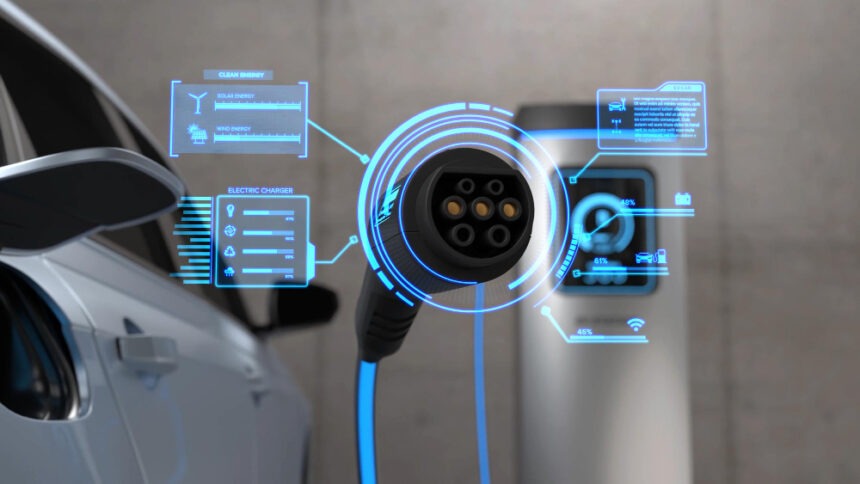The automotive industry is undergoing a seismic shift as electric cars (EVs) emerge as a powerful alternative to traditional gasoline-powered vehicles. With the growing awareness of climate change and the push for sustainable solutions, EVs are no longer a niche product; they are rapidly becoming mainstream. Electric cars represent a cleaner, more energy-efficient future, offering consumers a viable way to reduce their carbon footprint.
This transformation is driven by technological advancements, government policies promoting green energy, and the increasing affordability of electric vehicles. Companies like Tesla, Rivian, and legacy automakers such as Ford and General Motors are investing heavily in EV production. With global sales of electric vehicles on the rise, it’s evident that the transition to electric mobility is not just a trend but a necessity for a sustainable future.
In this article, we’ll explore how electric cars are shaping the future of transportation, the benefits they offer, challenges they face, and the exciting innovations driving this revolution.
The Rise of Electric Vehicles

Electric cars have come a long way since their inception. Early models were often criticized for their limited range, high cost, and lack of infrastructure. However, advances in battery technology and manufacturing processes have significantly improved their performance and affordability. Modern electric vehicles can now travel hundreds of miles on a single charge, making them competitive with internal combustion engine (ICE) vehicles.
Global sales data reflects this upward trend. In 2023 alone, EV sales surpassed 10 million units worldwide, a significant increase compared to previous years. This growth is fueled by countries setting ambitious targets to phase out ICE vehicles and promote renewable energy sources. For instance, the European Union aims to achieve net-zero emissions by 2050, with many member states banning the sale of new petrol and diesel cars by 2035.
Automakers are responding to these policies by ramping up their EV offerings. From compact cars to luxury SUVs, the variety of electric models available ensures there’s something for every consumer. Additionally, the integration of advanced features like autonomous driving, over-the-air updates, and smart connectivity makes EVs an attractive choice for tech-savvy buyers.
Environmental Benefits of Electric Cars

One of the most significant advantages of electric vehicles is their potential to reduce greenhouse gas emissions. Traditional vehicles rely on fossil fuels, which release harmful pollutants into the atmosphere. In contrast, EVs produce zero tailpipe emissions, making them a cleaner alternative for the environment.
Moreover, the energy used to charge electric cars can come from renewable sources like solar, wind, and hydroelectric power. As countries transition to greener energy grids, the overall carbon footprint of EVs will decrease even further. This shift aligns with global efforts to combat climate change and achieve sustainability goals.
Beyond reducing emissions, EVs contribute to improved air quality, especially in urban areas where traffic congestion often leads to smog and respiratory issues. By replacing ICE vehicles with electric models, cities can create healthier living environments for their residents. Additionally, quieter electric motors contribute to noise pollution reduction, enhancing overall quality of life.
Challenges Facing the Electric Vehicle Industry

Despite their numerous benefits, electric cars face several challenges that need to be addressed to ensure widespread adoption. One of the primary hurdles is the availability of charging infrastructure. While major cities have made significant progress in installing charging stations, rural and underserved areas often lack sufficient facilities, creating range anxiety among potential buyers.
Battery technology also remains a concern. Although advancements have improved energy density and reduced costs, issues like long charging times and the environmental impact of lithium mining persist. Researchers are actively exploring alternatives, such as solid-state batteries and recycling methods, to mitigate these challenges.
Another obstacle is the high upfront cost of EVs compared to ICE vehicles. Although lower operating costs and government incentives can offset this disparity, affordability remains a barrier for many consumers. Automakers are working to develop more budget-friendly models to expand their market reach.
Innovations Driving the EV Revolution

Innovation is at the heart of the electric vehicle industry’s rapid growth. Companies are investing in cutting-edge technologies to enhance the performance, efficiency, and safety of EVs. One notable area of advancement is autonomous driving. Electric cars are often equipped with advanced driver-assistance systems (ADAS), paving the way for fully self-driving vehicles in the near future.
Wireless charging is another promising development. This technology allows EVs to charge without the need for physical cables, offering greater convenience and encouraging adoption. Similarly, vehicle-to-grid (V2G) systems enable electric cars to act as energy storage units, providing electricity back to the grid during peak demand periods.
In addition to technological improvements, automakers are focusing on sustainable manufacturing processes. From using recycled materials in vehicle production to reducing waste and energy consumption, the industry is embracing eco-friendly practices to minimize its environmental impact.
A Roadmap to a Sustainable Future

Electric cars are more than just a technological advancement; they represent a fundamental shift in how we view transportation and its impact on the planet. By reducing emissions, improving energy efficiency, and offering innovative solutions, EVs are poised to redefine the automotive landscape.
As challenges like charging infrastructure and affordability are addressed, the transition to electric mobility will accelerate. Governments, businesses, and consumers must work together to create a supportive ecosystem that fosters the growth of electric vehicles.
The future of the automobile industry is electric, and the journey toward sustainability is well underway. Embracing this change not only benefits the environment but also paves the way for a cleaner, healthier, and more connected world.

